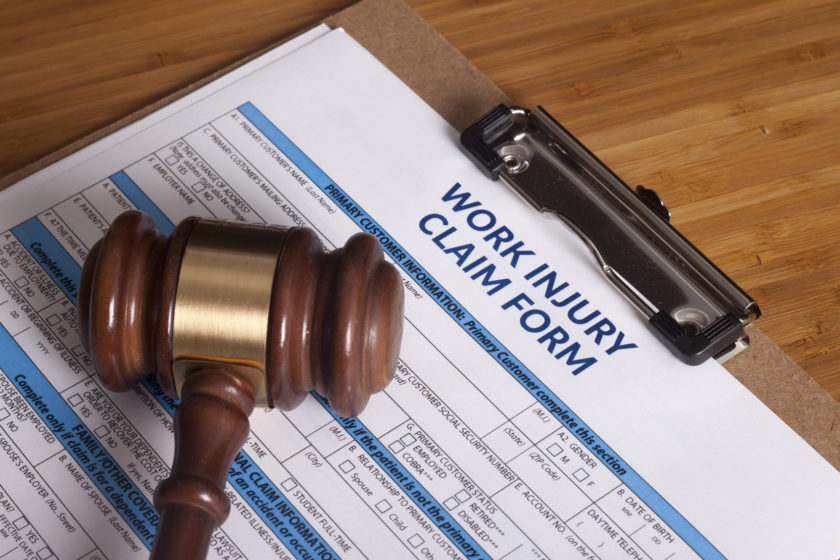Stephen Hasner | Workers' Compensation | May 25, 2020

If you experience injuries because of someone else’s negligence, you can normally seek compensation for pain and suffering through a personal injury claim.
The rules change if your injuries happen while on the job.
Even though workers’ compensation serves as a financial safety net to provide benefits if you’re injured while working, you cannot claim damages directly from your employer for pain and suffering.
Why Are Pain and Suffering Not Included in Workers’ Compensation?
Workers’ compensation laws are a bit of a tradeoff. While it streamlines the claims process between an employer and an injured employee, it shields the employer from lawsuits.
Under the Georgia Workers’ Compensation plan, your covered benefits include:
- Medical bills stemming from the accident
- Lost weekly wages
- Physical therapy and rehabilitation
- Compensation for disabilities.
Another benefit of the workers’ comp system is that you don’t have to prove who was at fault. As stated in the State Board of Workers’ Compensation (SBWC) handbook, you may even be able to file a workers’ comp claim if you caused the jobsite injury.
How Do I Find Out Whether My Employer is Covered By Workers’ Compensation?
In Georgia, any business with three or more employees is required to carry workers’ compensation insurance. If you’re not sure about your employer, you can verify online if they’re covered.
Can I Sue My Employer?
Workers’ compensation claims are meant to be the sole remedy for treating workplace injuries.
However, you are able to bring personal injury claims – and seek damages for pain and suffering – against a third party who caused you to be injured.
For example, if a drunk driver hits a delivery person who’s on the job, the injured worker could file a workers’ compensation claim for the truck accident, and also sue the driver and the trucking company for pain and suffering.
If your personal injury claim against a third party is successful, your employer may be able to keep a portion of your settlement as reimbursement for workers’ comp benefits already received.
What Should I Do If I Have a Workplace Injury?
The steps you take right after your workplace injury are vital to receiving the benefits and compensation you deserve. Any delay in the process can lead to your benefits being withheld.
- Seek medical attention. Your Georgia employer is required to have a listing of doctors you can see if you’re injured while working. A doctor’s exam is a crucial first step. It begins your treatment and recovery process, and properly documents the accident. After your exam, be sure to follow the doctor’s instructions.
- Report your workplace injury to your employer. This notice needs to be done within 30 days of your injury and in writing. Even if you think the accident was minor, you need to report it.
- File a workers’ comp claim. Your employer should provide you with a Form WC-14 to file your claim. If not, you can receive one directly from the SBWC by calling 800-533-0682.
- Speak with an attorney who knows workers’ compensation laws. Too often, injured workers do not get as much compensation as they should from workers’ compensation insurance companies. An experienced workers’ comp attorney can make sure you receive your full benefits.
- Document as much as you can. While recovering from an injury is tough enough, you should keep track of your medical appointments, bills, and your time away from work.
There are often obstacles that get in the way of workers’ compensation claims. By following the above steps, you’re more likely to experience a smooth process.
When Should I Begin Receiving Workers’ Compensation Benefits?
You should receive your first check within 21 days of your first missed day of work. Your payments should equal about two-thirds of your average weekly wages. This limit is $675 weekly.
Depending on your injury, you could be eligible for benefits for up to 400 weeks. If your injury is ruled to be catastrophic, you could receive lifetime benefits.
How Long Do I Have to File a Workers’ Compensation Claim?
You need to file your claim with a Form WC-14 with the SBWC within one year of your accident in order to be eligible for your benefits.
If you don’t receive benefits, you can request a hearing with the SBWC in Atlanta. Your attorney can attend with you. An Administrative Law Judge will listen to both sides of the claim and make a decision.
Do I Need an Attorney?
Because workers’ compensation claims are rarely easy or simple, having an attorney by your side is a good idea.
Whether you miss a filing deadline, get denied benefits, feel your settlement offer is too low, or think you may have a case against a third party, a workers’ compensation attorney can keep your case and benefits on track.
Contact Hasner Law PC to Get Help from Our Atlanta Workers’ Compensation Attorneys
For more information, please contact the Atlanta workers’ compensation law firm of Hasner Law P.C. at our nearest location to schedule a free consultation today.
We serve in Fulton County, Chatham County, and its surrounding areas:
Hasner Law PC – Atlanta Law Office
2839 Paces Ferry Rd SE #1050
Atlanta, GA 30339
(678) 888-4878
Hasner Law PC – Savannah Law Office
221 W York St
Savannah, GA 31401
(912) 234-2334


